Female bodybuilding has always been a topic of hot debate. Most people are on the fence about girls getting muscular and strong. Call it an insecurity or an outdated definition of femininity and beauty, but you cannot sweep this sentiment under the rug.
Ask an individual to describe a fashion show, and they’ll probably tell you about beautiful girls walking down a ramp. Ask them to describe a bodybuilding show, and they’ll narrate scenes where oversized muscular guys are flexing in their undersized posing suits.
Contrary to what most people think, these opinions are not limited to people outside the fitness community. The International Fitness and Bodybuilding Federation (IFBB) introduced the female bodybuilding division (Ms. Olympia) in 1980, 15 years after it hosted the inaugural Mr. Olympia contest in 1965.
It doesn’t end here. The IFBB withdrew the Ms. Olympia contest from the Olympia Weekend in 2016, citing waning fan interest and plummeting ticket sales. The division was re-introduced after a new owner took over the brand.
Bodybuilding promoters had expected that the end of the Ms. Olympia division would de-incentivize the athletes from building big, muscular physiques. However, the ladies persisted in the face of adversity.
Cut to today; the Olympia brand is owned by Jake Wood, the founder of Wings of Strength, a female bodybuilding organization. The Mr. Olympia show now has six female divisions and four male divisions.
25 Best Female Bodybuilders of All Time
Competitive bodybuilding is thriving as a sport, and female bodybuilders are leading the charge. This article is dedicated to the 25 best female bodybuilders of all time and their achievements.
However, before we get into the article, let’s talk about what you should expect from this article. I’ve only considered female professional bodybuilders for this article that compete in the IFBB Pro League, formerly the IFBB.
Without any further ado, here are the best female bodybuilders that have graced the stage:
Iris Kyle
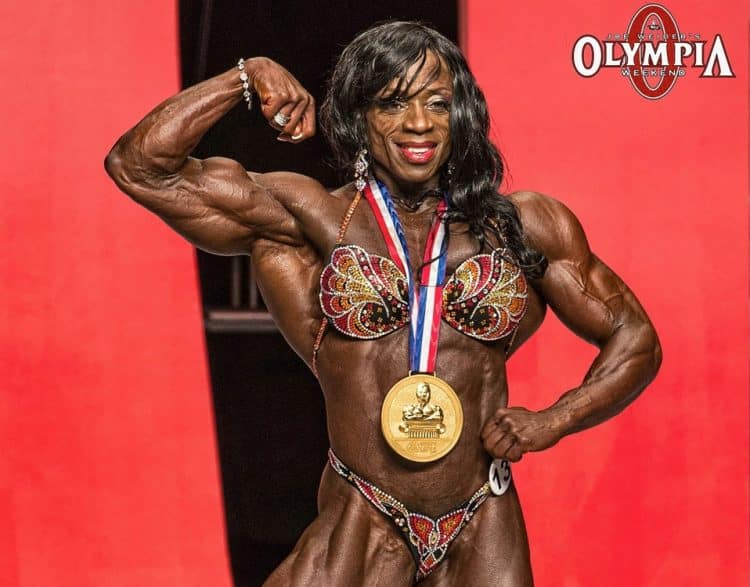
Iris Kyle is the most dominating female bodybuilder in the Open division. She has won the Ms. Olympia title a record 10 times (2004 & 2006-14), more than even Lee Haney and Ronnie Coleman, who have eight Sandow trophies each to their name. Kyle has won the Arnold Classic (Ms. International) title seven times, another record.
Kyle is arguably the most muscular female bodybuilder of all time. Her insane muscle size, symmetry, proportions, and conditioning, earned her the moniker “The Female Ronnie Coleman.” “Chocolate Chip” and “Game Over” are among her other nicknames.
Kyle got into bodybuilding after she saw a photo of Lenda Murray in the Flex magazine. She entered and won her first bodybuilding show in 1994 — the Long Beach Muscle Classic. Kyle beat Murray in 1994 to win her maiden Ms. Olympia crown.
Kyle won the final Ms. Olympia contest before the promoters brought down the curtains on the show in 2014. At the time of writing, Kyle has still not retired from competitive bodybuilding and plans to make a comeback on the Olympia stage in the near future. Winning the Olympia title grants you lifetime qualifications to compete in your division.
Lenda Murray
Lenda Murray was the fifth female bodybuilder to be crowned the Ms. Olympia. Female bodybuilders got a little bigger and better every year after the inaugural Ms. Olympia. That was until Murray came onto the scene and blew her competitors out of the water with her insane muscle size and symmetry. Murray did for the female bodybuilding division what Haney did for the male circuit, earning her the nickname “The Female Haney.”
Murray’s qualification for her first Olympia came just a year after the retirement of the six-time Ms. Olympia champion, Corinna Everson. Most bodybuilding pundits and fans were waiting for female bodybuilding titan Bev Francis to take the reigns after Everson hung up her posing suit. However, it was Murray who stepped up and conquered the Ms. Olympia crown on her debut.
Murray matched Everson’s record of six-consecutive Ms. Olympia title wins in 1995. The IFBB introduced the infamous “femininity” rules in 1992 to discourage female bodybuilders from getting too big. Murray’s convincing win at the show made them walk back on their decision and later withdraw the new rules.
Murray retired from bodybuilding after losing her Ms. Olympia throne to Kim Chizevsky-Nicholls in 1996 and placing runner-up to her in 1997. When almost everyone had written Murray off, she made a comeback to the Olympia stage after a five-year hiatus in 2002 and, to everyone’s surprise, won the show convincingly. She matched Haney’s record of eight Olympia titles in 2003. Ronnie Coleman would join the duo in 2005.
Corinna Everson
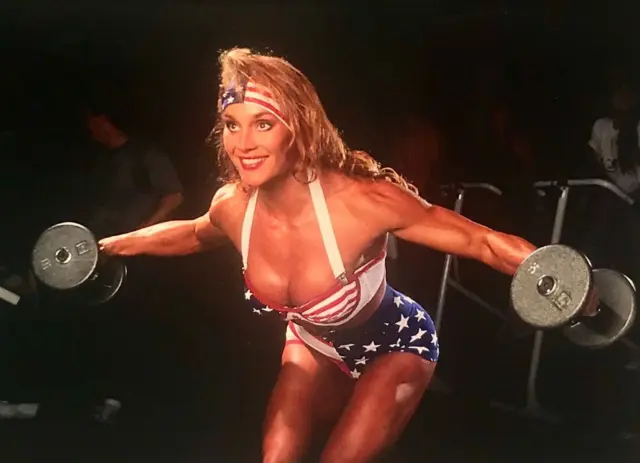
Corinna Everson won the Ms. Olympia title for six consecutive years between 1984 and 1989. The 1984 Ms. Olympia contest was also the first time the show was held outside the United States. Back then, the IFBB held the Ms. OIympia and Mr. Olympia contests separately.
Everson was class-apart from her competition and won her maiden Ms. Olympia title on her debut. The defending champion, Carla Dunlap, had to settle for a fourth-place finish. “Cory” won the coveted Olympia title for the next five years before retiring in 1989. She is the only undefeated Ms. Olympia champion in the history of the sport.
Known for her drop-dead gorgeous looks, Cory took up acting after retiring from competitive bodybuilding. She appeared alongside Jean-Claude Van Damme in Double Impact (1991). Her other notable works include Natural Born Killers (1994) and Ballistic (1995).
Everson also made guest appearances in television series, most notably playing Atalanta on Hercules: The Legendary Journeys. She also appeared in two episodes of The Adventures of Brisco County, Jr with her sister, Cameo Kneuer.
Kim Chisevsky
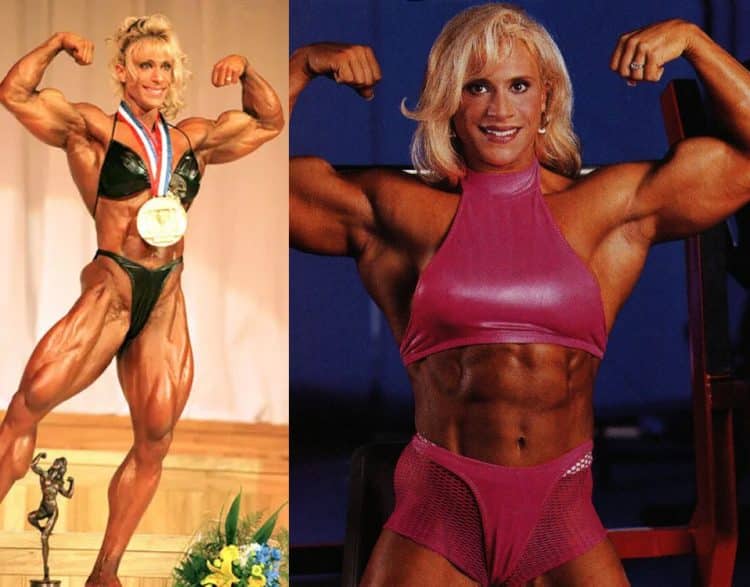
Chizevsky made her pro debut at the 1993 Ms. International (Arnold Classic) and won it convincingly. The victory at the second-biggest bodybuilding show in the industry pushed her into the upper echelons of pro bodybuilding. In her prime, Kim Chisevsky was one of the biggest and most conditioned female bodybuilders of all time.
Every dominant champion’s reign must come to an end. Most of these champs are usually weak and on the decline when they are unseated. However, this was not the case with Murray. Murray had a vice-like grip on the female Open bodybuilding division and was consistently growing when Everson dealt her an upset in 1996.
Chisevsky’s coach and husband, Chad Nicholls, is considered the biggest driving factor behind her win over Murray and holding onto the Ms. Olympia throne for the next three years. Chisevsky retired from the Female Open bodybuilding division in 1999 after winning her fourth title.
However, this was not the end of Chizevsky’s competitive bodybuilding career. She competed in 2001 and 2002 in the Fitness category and 2003 and 2004 as a Figure competitor. Chizevsky was inducted into the IFBB Hall of Fame in 2008.
Check Out: 10 Best Bodybuilding Coaches with Proven Track Records
Cydney Gillon
At the time of writing, Cydney Gillon is the six-time Figure Olympia champion (2017-2022). She has an unyielding grip on the Figure Olympia throne and is going strong to set new records in the IFBB Pro League. Gillon also has two Figure International (Arnold Classic) wins — 2019 and 2022.
The second-winningest bodybuilder in the division has four Olympia titles. Many bodybuilding fans believe that Gillon’s record will last a long time. The Figure Olympia champ is known for her proportions, muscle separation, size, balance, flow, stage presence, and presentation skills. She owns the crown the moment she steps onto the stage.
Gillon’s broad shoulders, narrow waist, and sprawling quad sweeps help her achieve a near-perfect score in every show she competes in. She is very open with her fans and often shares the behind-the-scenes of her Olympia prep and everything else that goes into building her championship-winning physique.
Gillon is a bodybuilding show promoter and hosts the NPC Cydney Gillon Peach Classic. Besides her bodybuilding career and ambitions, Gillons runs the Cydney Gillon Student-Athlete Scholarship, where she sponsors a part of a student’s college fees each year. Gillon was a contestant on Survivor: Kaôh Rōng, where she finished fourth.
Andrea Shaw
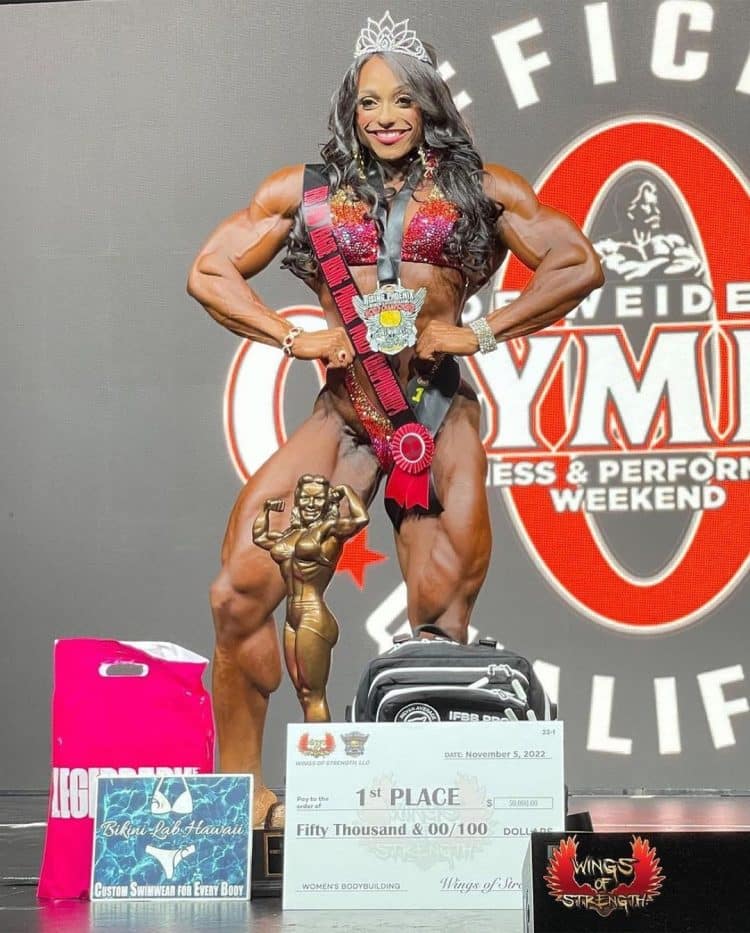
At the time of publication, Shaw is the three-time and reigning Ms. Olympia and Rising Phoenix champion, making her the most dominant Women’s Open bodybuilder.
Shaw began her journey as a gymnast and competitive cheerleader. She started weight training after she felt burned out from gymnastics and cheerleading, and her mother encouraged her to join a gym.
Shaw started training by herself in the gym at the age of 15. However, a female competitive bodybuilder took her under her wing after she turned 17. After reading a magazine full of athletic fitness and sports models, Shaw decided to become a pro bodybuilder.
In 2008, Shaw entered her first two bodybuilding competitions as a Figure competitor, finishing third and fourth. She returned as a Physique competitor after an eight-year break at the 2018 Nationals, earning herself a pro card.
Shaw debuted in the Open division at the 2019 Chicago Pro, placing runner-up. The rest, as they say, is history. Shaw won her maiden Ms. Olympia title almost a year after switching to the Women’s Open division and is expected to hold onto the title for a long time.
Yaxeni Oriquen
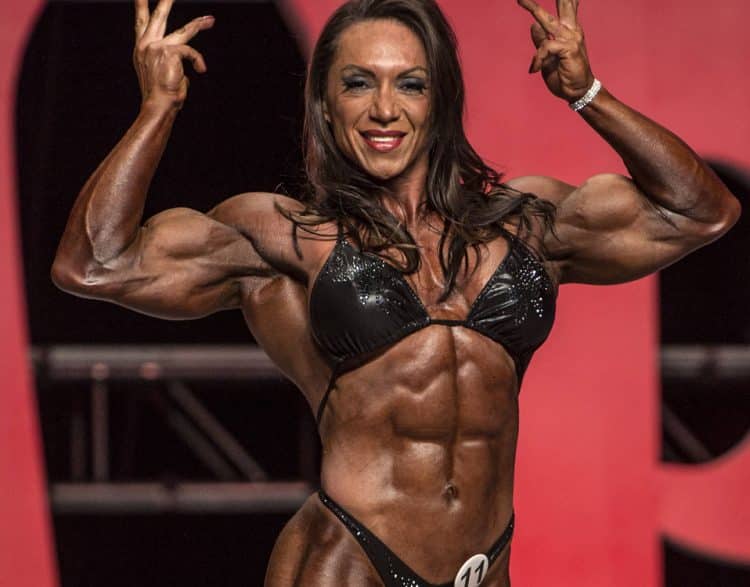
Yaxeni Oriquen-Garcia is a Venezuelan-American retired professional bodybuilder that won the Ms. Olympia title in 2005. She dethroned the dangerous Iris Kyle to pick up her first Olympia gold medal. Additionally, she has won five Ms. International titles in 2002, 2003, 2005, 2008, and 2012.
The IFBB introduced two weight classes in 2000 (over 135 pounds and up to 135 pounds). However, it was abandoned in 2005. Oriquen earned a bronze medal at the 2004 Olympia in the heavyweight division, whereas Iris Kyle won the division and the overall contest.
For the 2005 Olympia, the IFBB introduced a ’20 percent rule’ which stated: “that female athletes in bodybuilding, fitness, and figure decrease the amount of muscularity by a factor of 20%”. This new rule favored Oriquen, who managed to unseat Kyle to win her maiden Olympia title.
Read also: Top 18 Girls with the Biggest Biceps in the World
Valentina Chepiga
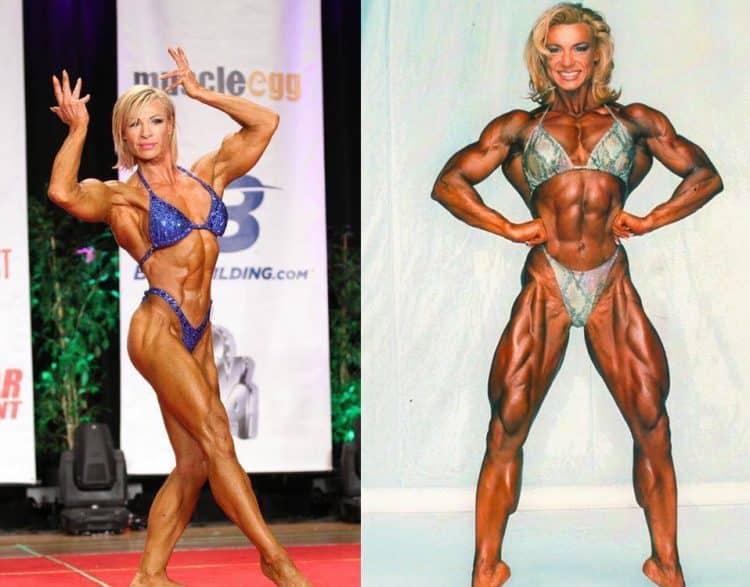
Valentina Chepiga is the most successful Ukrainian professional bodybuilder of all time. She is the only bodybuilder from Ukraine to win the coveted Ms. Olympia title. Chepiga emerged victorious at the 2000 Ms. Olympia contest.
Notably, the IFBB made three big changes to the Ms. Olympia contest in 2000. First, they introduced a heavyweight and lightweight class. Second, this was the first year the Ms. Olympia and Mr. Olympia contests were held on the same day. Finally, new judging criteria were introduced for the Female Open division, which nudged the judges to assess the contestants on “symmetry, presentation, separations, and muscularity BUT NOT TO THE EXTREME.”
Chepiga won the heavyweight division, while Andrulla Blanchette won the lightweight class. The two bodybuilders didn’t compete against each other to decide an overall winner. So, essentially Chepiga and Blanchette are the co-winners of the 2000 Ms. Olympia.
Chepiga made her professional debut at the 1998 Ms. Olympia, where she finished 12th. She repeated her performance at the 1999 Olympia before pulling off a blinder and winning the heavyweight class in 2000. Chepiga won the 2002 Ms. International title in the lightweight class.
Andrulla Blanchette
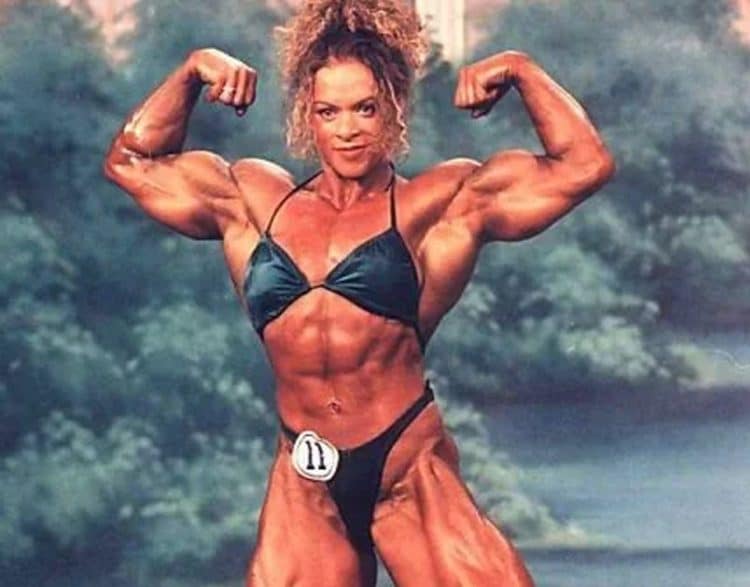
Blanchette entered her first bodybuilding competition a few weeks after starting training — and won! The contest had women bodybuilders that had been training for several years. This should tell you volumes about her genetics and potential. Andrulla is also Black Belt First Dan in Judo.
Blanchette won the 2000 Ms. Olympia in the lightweight class. She surrendered the title to Juliette Bergmann in 2001, who also took the overall win by beating Iris Kyle. Blanchette is the only British female bodybuilder to have won the Ms. Olympia title, making her the most successful female English bodybuilder of all time.
Blanchette was transparent about her gear use, something that was discouraged by the IFBB at that time. “People aren’t stupid; they know what’s going on, and I’m not going to insult them with a fib,” said Blanchette in an Iron Magazine interview while talking about her steroid use.
Blanchette appeared in several TV shows in the UK during her bodybuilding career. She starred on the TV show Lexx, in the episode Viva Lexx Vegas, as “Queen of Sheba.”
Juliette Bergmann
Juliette Bergmann won the 2001 Ms. Olympia by winning the lightweight class and beating Iris Kyle, who had won the heavyweight division. The 2001 Olympia was the first time the winners of the heavyweight and lightweight divisions squared up to determine an overall winner.
Notably, Bergmann was making a comeback at the 2001 Olympia after an 11-year hiatus. She had last competed at the Olympia in 1989, where she took 13th place. This was the biggest and the best comeback in Olympia’s history. Even better than Ronnie Coleman winning the 1998 Olympia by beating Flex Wheeler after a ninth-place finish at the 1997 Olympia.
The 2001 Olympia was the only year in Ms. Olympia history where the lightweight champ took the overall title.
The Dutch bodybuilder retained her lightweight Olympia title in 2002. However, she couldn’t hold off the dominant Lenda Murray, who was making a comeback in the heavyweight division. The queen of comebacks was made a victim of a comeback.
The 2003 Olympia was a repeat of the 2002 Olympia. Bergmann won the lightweight division, whereas Murray bagged the heavyweight class and the overall Ms. Olympia title. Bergmann retired after the 2003 Olympia.
Juliana Malacarne
Juliana Malacarne is the winningest Women’s Physique Olympia champion of all time. She won the title for four-consecutive years between 2014 and 2017. Sarah Villegas and Shanique Grant are tied for the second spot with two Women’s Physique Olympia titles each.
The Brazilian bodybuilder earned her pro card in 2005 by winning the IFBB Amateur BodyFitness Championships in São Paulo. She won the New York Pro Women’s Physique division in 2012, 2013, and 2014. Her dominance at the NY Pro made people take note of her.
The IFBB added the Men’s and Women’s Physique divisions to the Olympia Weekend in 2013. Malacarne had finished seventh at the inaugural Ms. Olympia contest. After the dust settled and the bodybuilders understood what the judges were looking for, Malacarne returned to the drawing board, determined to make a dent in the division.
Malacarne’s new and improved physique, combined with the momentum she had behind her from her 2014 NY Pro win, helped her upset the reigning Women’s Physique champ Dana Linn Bailey to win her first of four Women’s Physique Olympia titles in 2014. Malacarne retired undefeated after her fourth Olympia title.
Ashley Kaltwasser
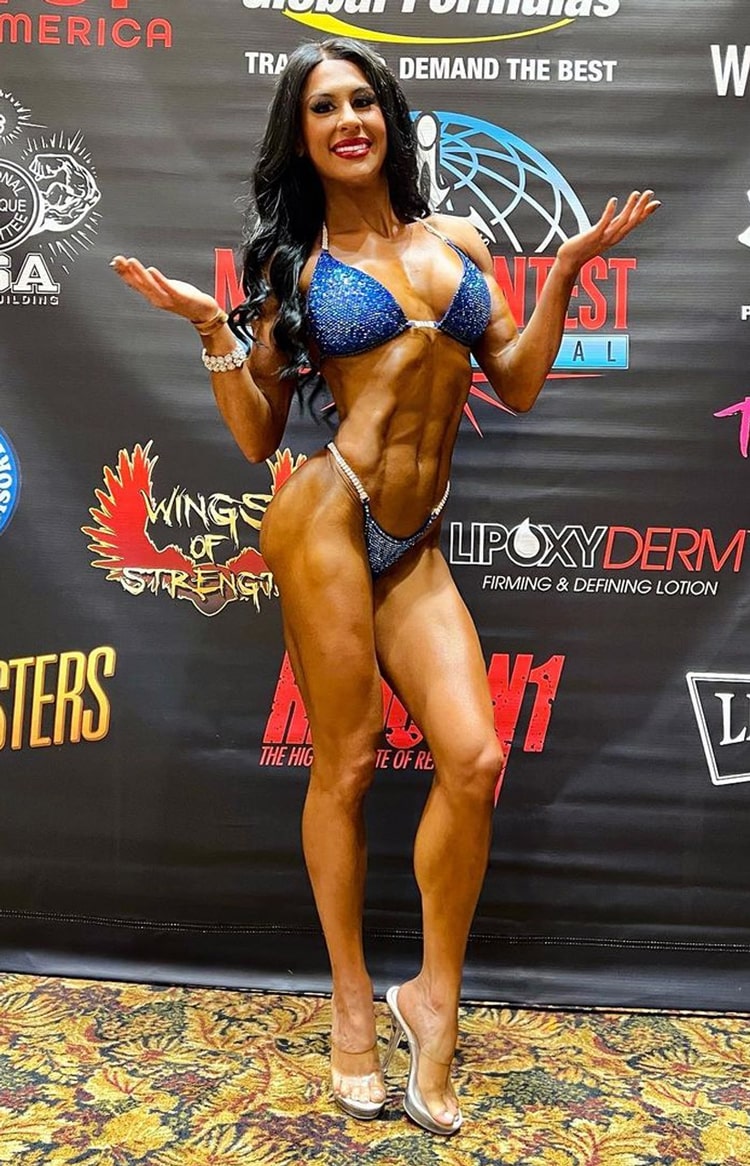
With 40 pro bodybuilding show wins in her kitty, Ashley Kaltwasser is the winningest IFBB Pro League bodybuilder of all time. The 2008 Mr. Olympia champion Dexter Jackson leads the men’s side with 29 wins.
The Bikini Olympia division was introduced in 2010 and has since become one of the most popular divisions in the IFBB Pro League. The Bikini division competitors prioritize balance, shape, and overall appearance and are even judged on their hair, tan, poise, and walk.
Kaltwasser has won the Bikini Olympia crown for three consecutive years — 2013, 2014, and 2015. The former track and field athlete won the Olympia crown on her debut, making her the second bodybuilder to win the Olympia title in their division on their first attempt. Corinna Everson achieved this feat at Ms. Olympia in 1984.
In 2014, Kaltwasser became the first Bikini Olympia champion to defend her throne successfully. Before her, no other Bikini Olympia champ had been able to hold onto their title.
At the time of publishing, Kaltwasser is still going strong and is working hard to win her fourth Bikini Olympia title.
Susan Curry
Susan Curry started competing in bodybuilding shows in 1996 and turned pro in 1997. Curry is a four-time Fitness Olympia champion (2000-03). She has also emerged victorious at the Figure International (Arnold Classic) four times — 1998, 1999, 2002, and 2003.
The Fitness division is one of the most exciting divisions in the IFBB, thanks to its high-flying dance maneuvers, fancy costumes, and jacked physiques. It was the second female division to be introduced by the IFBB at the Olympia (1995) after the Open bodybuilding.
Curry won her maiden Olympia title in 2000 by beating the crowd favorite Kelly Ryan. In 2001, she also became the first Figure Olympia champ to defend her title successfully. Curry helped define the standards for the Figure division with her flawless figure and amazing dance routines.
After the 2003 Fitness Olympia win, Curry switched to the Figure Olympia, citing the stress the gymnastics routines involved in the Fitness division placed on her joints.
Curry hung up her posing suit after a third-place finish at the 2004 Arnold Classic in the Figure division.
Adela Garcia
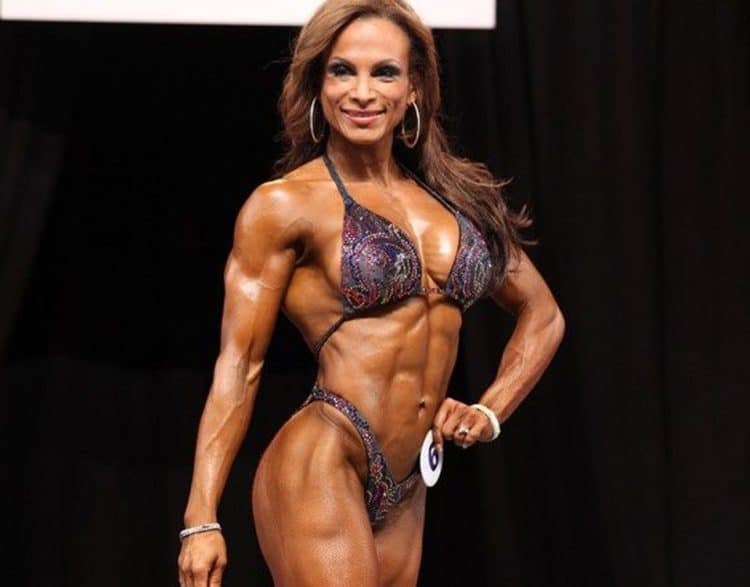
With eight Fitness Olympia titles on her mantle, Adela Garcia is the winningest bodybuilder in the division. Garcia turned pro in 1999 and made her pro debut with an eighth-place finish at the 2000 Fitness International.
Garcia took home a fifth-place finish at her maiden Fitness Olympia contest in 2000. She followed it up with a top-five finish in the subsequent two editions of the show. Garcia became a frontrunner to win the title when she scored a bronze medal at the 2003 Olympia. The reigning champ Curry’s retirement after the 2003 Olympia worked in her favor, and she captured the vacant throne by outdoing Kelly Ryan, who fell to third place, while Jen Hendershott earned a silver medal.
Garcia also emerged victorious at the 2004 and 2006 Fitness International. However, Garcia’s dream run was short-lived. She lost her title to Hendershott at the 2005 Olympia. Garcia didn’t let this loss crush her spirit. She returned with a vengeance and secured a gold medal at the 2006 and 2007 Olympia, while Hendershott had to settle for third place. The rivalry continued as Hendershott won her second Olympia title in 2008 by dethroning Garcia.
However, it was Garcia who emerged on the top when the dust settled. She won the Olympia title for five consecutive years between 2009 to 2013 and created history. Garcia retired after winning her eighth Fitness Olympia title in 2013.
Oksana Grishina
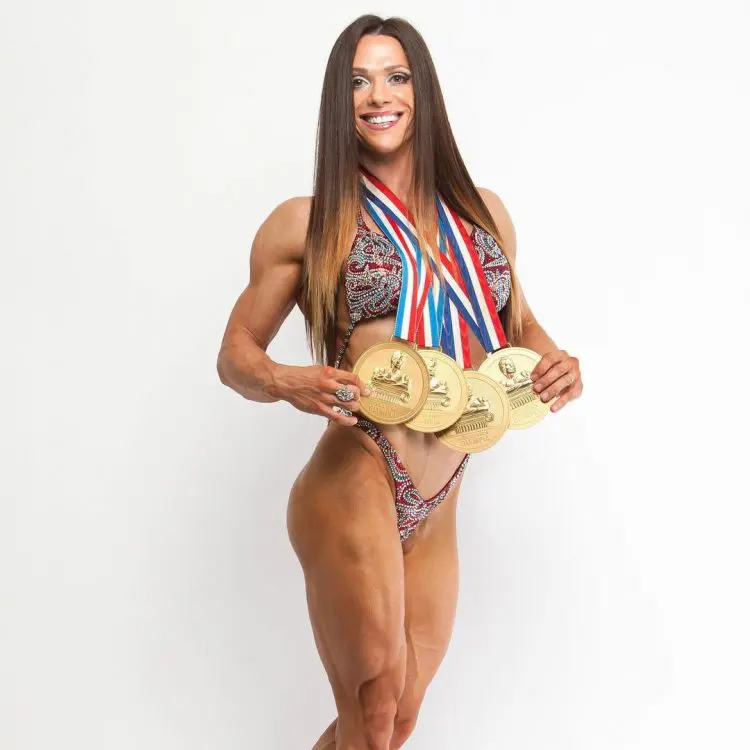
Oksana Grishina is a four-time Fitness Olympia winner. Her Joker performance at the 2021 Olympia Weekend is arguably the most iconic Fitness Olympia routine of all time. She has also won the Fitness International title twice (2014 and 2015).
Grishina broke into the top five at the Olympia in 2010 and 2011. She then finished second behind Garcia in 2012 and 2013, making her the frontrunner to win the title. With Garcia out of the picture, Grishina captured her maiden Fitness Olympia title in 2014.
Tanji Johnson and Regiane Da Silva were Grishina’s most prominent rivals during her reign. Nonetheless, neither could hold off Grishina as she continued her winning streak in 2015, 2016, and 2017. Grishna announced her retirement from competitive bodybuilding after her 2017 Olympia victory. However, she came out of retirement to compete at the 2020 Olympia, where she secured an impressive silver medal.
Grishina finished third behind Missy Truscott and Whitney Jones at the 2021 Olympia. Grishina had to pull out of the 2023 Olympia on the day she was supposed to step on stage due to an undisclosed injury. At the time of publishing, Grishina has still not announced her retirement and is looking for her fifth Fitness Olympia title.
Margaret Martin
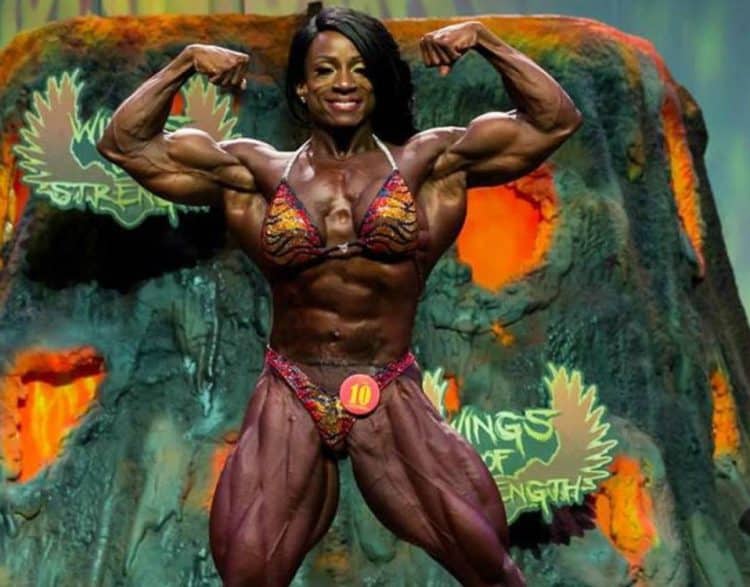
After the Olympia Weekend discontinued the Ms. Olympia contest, the Wings of Strength Rising Phoenix Championship took in the expelled Open division bodybuilders, making it the most prestigious female bodybuilder contest. The Olympia reintroduced the Ms. Olympia contest in 2020.
Margaret Martin won the inaugural Rising Phoenix title in 2015 and did a repeat in 2016, making her Iris Kyle’s successor and the benchmark bodybuilder for all other Wings of Strength bodybuilders. “The Marvelous One” was one of the most jubilant bodybuilders of her time. She was also known for her exceptional posing skills.
Martin knew she wanted to be a bodybuilder and started weight training at the age of 13 when she met the legendary Lee Haney in her local church when she was a little girl. However, she competed in her first bodybuilding competition in 2007 at the age of 28 after losing weight after having her first son.
Martin made her pro debut in 2014 at the Toronto Pro Supershow, where she placed fourth. Besides her two WOS Rising Phoenix title victories, Martin has won the Toronto Pro Supershow twice (in 2018 and 2019).
Martin placed runner-up to Andrea Shaw at the 2020 Ms. Olympia and took a bronze medal at the 2021 Olympia. “The Marvelous One” retired from competitive bodybuilding after finishing fifth at the 2022 Olympia.
Helle Trevino
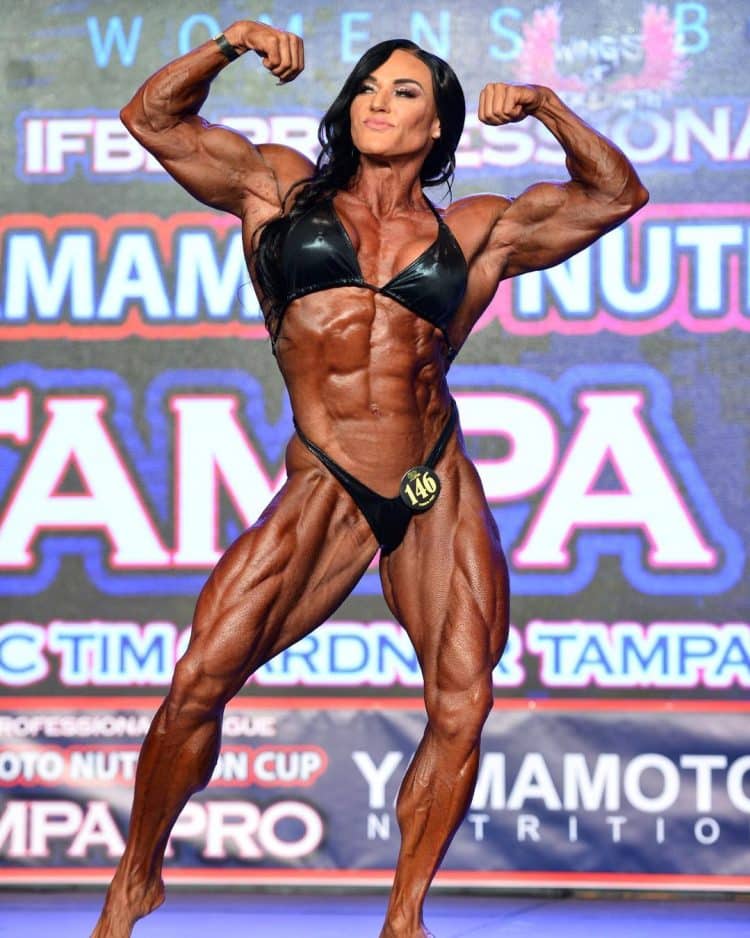
Helle Trevino is a two-time Rising Phoenix World Champion (2017 and 2019). Trevino started training at the age of 17 and soon realized that she had the genetics for competitive bodybuilding and should pursue it professionally.
“The Beastqueen” won the 1988 Danish Nationals at the age of 22, which was also her first bodybuilding show. She also competed in and won the Scandinavian Championships in the same year.
The string of victories continued for Trevino as she competed in and won the heavyweight division and overall at her pro debut, the Jan Tana Classic. She placed fifth at her debut Ms. Olympia appearance in 2003.
Trevino then took a long break to focus on building her personal training business. After an eight-year hiatus, she returned to competitive bodybuilding in 2011 and won the IFBB FIBO Power Pro Germany.
Although Trevino had a lukewarm performance at the Olympia until 2014, things started to change for her when the Wings of Strength organization was formed. She won the 2015 WOS Chicago Pro and has never placed outside the top five at a WOS bodybuilding show.
Trevino won a bronze medal at the 2020 Olympia behind Andrea Shaw and Margaret Martin, runner-up at the 2021 Olympia behind Shaw, and second runner-up at the 2022 Olympia, despite suffering a major shoulder surgery earlier in the year.
Related: Top 18 Girls with the Biggest Biceps in the World
Alina Popa
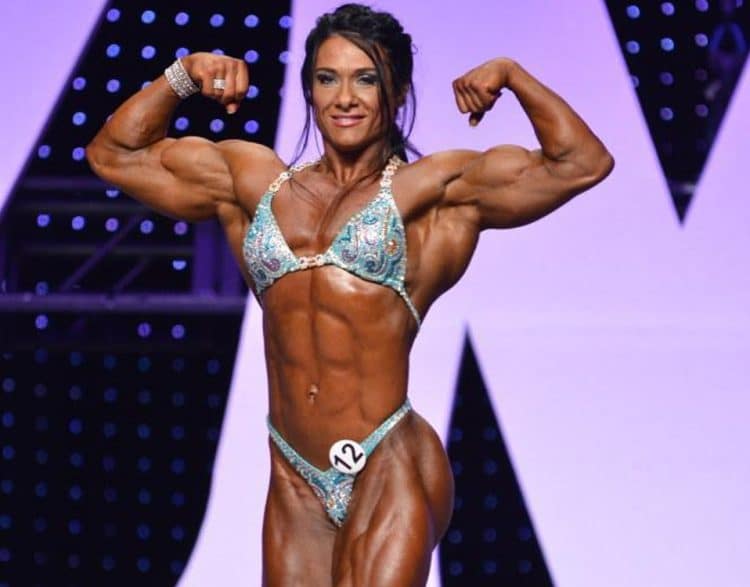
The highlight of Alina Popa’s professional bodybuilding career has been winning the 2018 Rising Phoenix World Championship.
Popa started weight training at the age of 17 and entered her first competition at the age of 20, where she placed second. She won a bronze medal in her division at the National Championships in the same year.
Popa received her IFBB Pro card after winning the heavyweight class and overall 2008 IFBB Worlds Santa Susanna. The Danish bodybuilder secured a bronze medal in her sophomore year at the Ms. International contest in 2011. She followed it up with a fifth-place finish at the Ms. Olympia in the same year. She has never placed outside the top five ever since.
Popa finished runner-up behind Iris Kyle at the 2013 and 2014 Ms. Olympia. She didn’t compete at the 2015 Rising Phoenix due to an injury but secured a bronze medal at the show’s second edition in 2016. Popa hung up her posing suit after winning the 2018 Rising Phoneix World Championship.
Nicole Wilkins
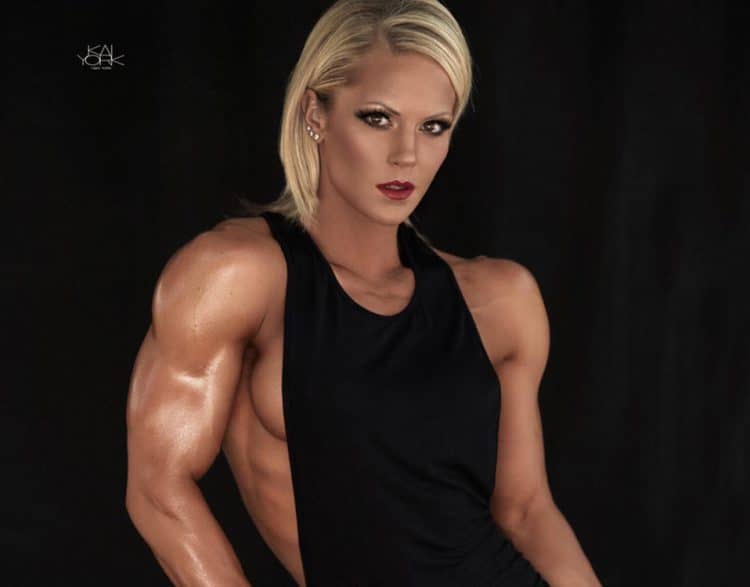
Nicole Wilkins is a four-time Figure Olympia champ and a three-time winner of the IFBB Figure International (Arnold Classic).
Wilkins competed at the 2007 NPC Team Universe Championships in New York City in the Figure and Fitness divisions and won overall in both divisions, earning herself an IFBB Pro card. In 2011, Wilkins became the first Fitness athlete to win the Figure International and Figure Olympia titles in the same year.
Wilkins captured her first Figure Olympia title in 2009 after the 2008 champ Jennifer Gates vacated the throne, making it anyone’s for the taking. However, Wilkins left the gate open for her competition at the 2010 Olympia, which allowed Erin Stern to sneak the crown from beneath her.
The cat-and-mouse game continued as Wilkins recaptured the Figure Olympia throne in 2011 but lost it again to Stern in 2012. Wilkin reclaimed the title again in 2013 and won her fourth and final title in 2014.
Wilkins lost her throne for the third time to Latorya Watts in 2015. She placed fourth at the 2016 Olympia and stepped away from competitive bodybuilding after placing fifth at the 2017 Olympia.
Davana Medina
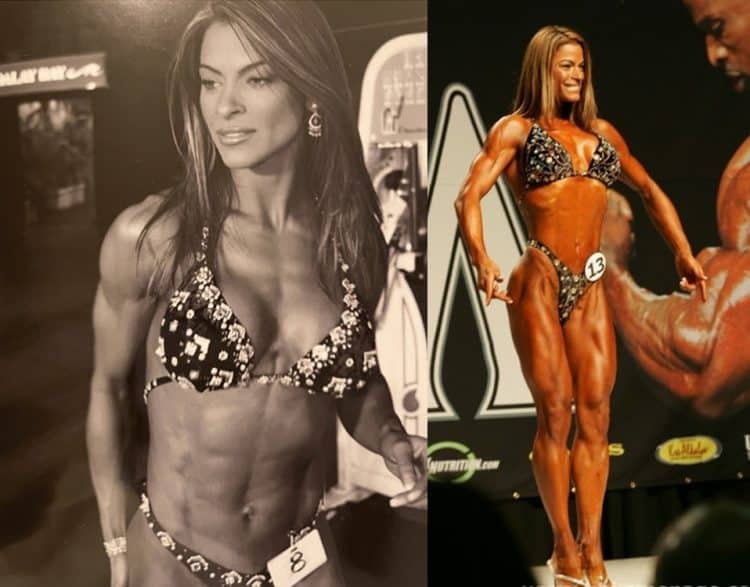
Though often overlooked, Davana Medina is one of the most successful Figure competitors ever. She won the inaugural Figure Olympia contest in 2003. Medina held onto the title for the next two years, making her the most dominating Figure athlete of her time. It is believed that the judges used Medina as a benchmark to judge all the other athletes, and her impeccable figure allowed her to maintain a vice-like grip on the division.
Medina had turned pro after winning the first NPC Figure Nationals in 2001. Interestingly, since there was no Figure contest until 2003, she was forced to take the rest of 2001 and 2002 off from competition.
Medina retired from competitive bodybuilding after missing the 2006 Olympia. The three-time Figure Olympia champ confirmed her comeback to the competitive circuit in 2010 at the IFBB Europa Hartford Bikini Championships. However, she later pulled out of this competition.
Medina competed in a total of 12 competitions in her bodybuilding career and won 10 of them. She won a silver and bronze medal in the other two.
Angelica Teixeira
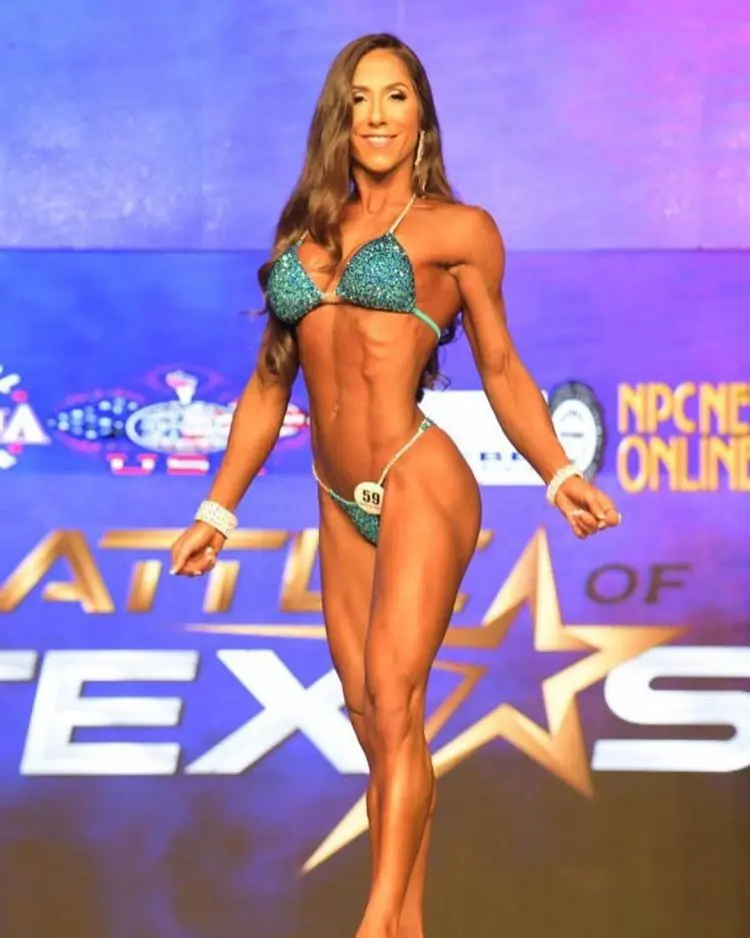
Angelica Teixeira has won the Bikini Olympia title twice (2017 and 2018). She also won the Bikini International competition in 2018.
Born and raised in Brazil, Teixeira started training at the age of 18. However, she entered her first bodybuilding competition at 28 after moving to the United States and earning her personal trainer certification.
Within three years, she won 12 out of 22 contests she participated in. Teixeira debuted at the Olympia in 2015. She became the frontrunner to win the title when she placed runner-up behind Courtney King at the 2016 Olympia.
With the reigning champion, King, opting not to defend her title at the 2017 Olympia, Teixeira became the favorite to win the show. She bagged her first Bikini Olympia title in 2017 and did a repeat in 2018. Teixeira’s last show was the 2020 Olympia, where she finished fourth. She has since been on a break from competitive bodybuilding and has been busy raising a family with her husband.
Dana Linn Bailey
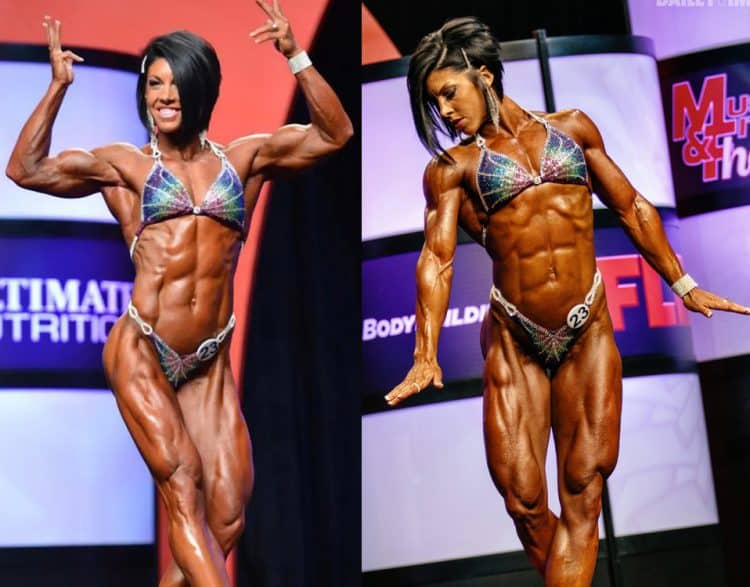
Dana Linn Bailey is one of the most popular female bodybuilders of the modern era. Bailey was one of the first fitness YouTubers, amassing a sizeable loyal following because of her genuine content.
Bailey competed in the Figure division between 2006 and 2010. However, she became the first Women’s Physique professional bodybuilder in the NPC and IFBB by winning the 2011 Junior USAs.
The switch from the Figure to the Women’s Physique division paid off for Bailey as she started winning shows right off the bat. She qualified for the first Women’s Physique Olympia in 2013 and won the show convincingly.
However, Bailey couldn’t hold onto the title for too long and surrendered her Olympia throne to Juliana Malacarne in 2014. Bailey has been on a long hiatus from competitive bodybuilding after placing second at the 2015 Arnold Classic.
At the time of writing, Bailey has not officially retired from bodybuilding, keeping her fans hopeful for a comeback. That said, she has competed in powerlifting meets and American Ninja Warriors since 2015.
Rachel McLish
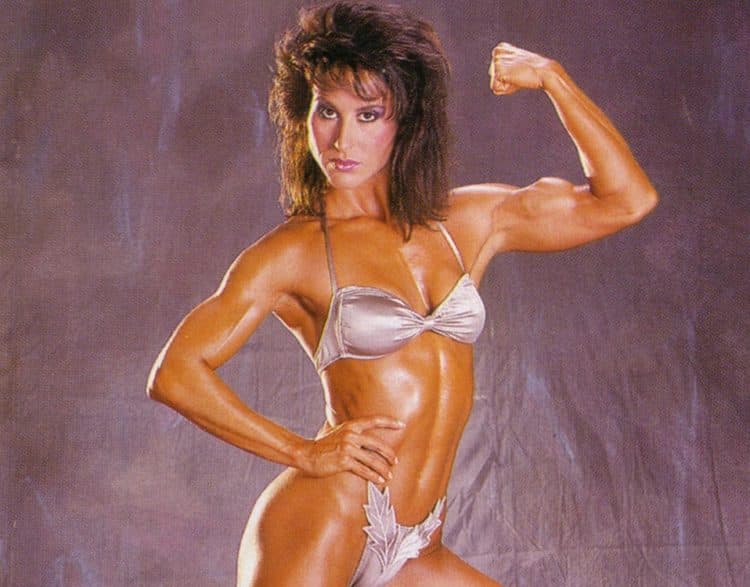
Rachel McLish etched her name in the history books by becoming the first female bodybuilder to win the Ms. Olympia title in 1980. McLish also won the inaugural United States Championships in the same year.
McLish is the first female bodybuilder to regain the Ms. Olympia title after losing it to Ritva Elomaa in 1981. McLish’s 1980 Ms. Olympia victory made her the most popular magazine cover model for the next five years.
McLish retired from competitive bodybuilding after finishing runner-up behind Corinna Everson at the 1984 Ms. Olympia. McLish never placed lower than third in any shows in her four-year short but thrilling bodybuilding career. She was inducted into the IFBB Hall of Fame in 1999.
Ritva Elomaa
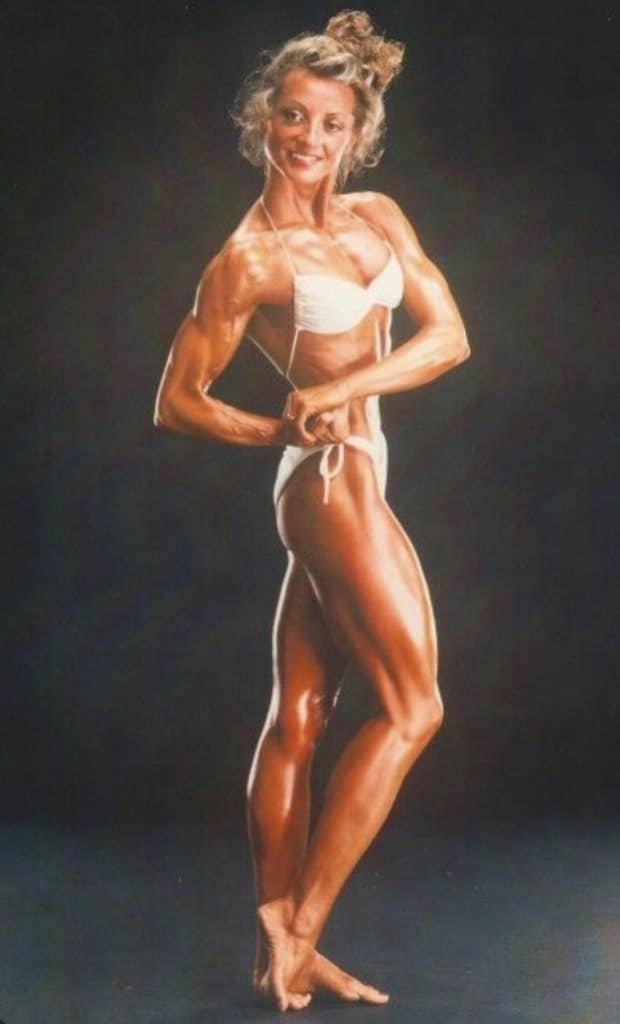
Bodybuilding journalists believe that McLish’s overconfidence cost her the 1981 Olympia title. Her muscle conditioning was not up to the mark, which allowed Ritva “Kike” Eolmaa to dethrone her and grab her maiden Ms. Olympia title.
Although Elomaa had a successful run in the pro bodybuilding circuit, she only competed three more times after her 1981 Olympia win. She placed third at the 1982 IFBB Ms. Olympia and secured a silver medal at the 1983 IFBB Pro Worlds. Eolmaa retired from competitive bodybuilding after a fifth-place finish at the 1983 IFBB Ms. Olympia.
Eolmaa is the most successful Finnish bodybuilder of all time and was inducted into the IFBB Hame of Fame in 2001. She is a recipient of the IFBB’s President’s Gold Medal for her work in supporting the sport of bodybuilding.
At the time of writing, Eolmaa is a Member of the Finnish Parliament and assumed office in Apr. 2011.
Carla Dunlap
Until 1982, Ms. Olympia competitors were handpicked. However, a change in hosting rights enforced a new rule, requiring bodybuilders to qualify for the Olympia through placings in lesser contests. This new change allowed more muscular and diced athletes like Carla Dunlap to enter the Ms. Olympia contest.
Dunlap was the biggest and most defined female bodybuilder on the 1983 Ms. Olympia stage, which helped her secure her maiden Olympia title.
Check Out: 21 Famous Black Bodybuilders That Achieved Greatness
Wrapping Up
These 25 female bodybuilders are legends that will inspire generations to come. Most of the bodybuilders on this list went through several hardships to get to where they are today. Not just the bodybuilders, but the Ms. Olympia division itself, was disbanded to dissuade the ladies from getting too big and muscular.
From overcoming societal barriers to rewriting records, female bodybuilders have shattered stereotypes and redefined what it means to be powerful and feminine. Let their stories serve as a beacon of motivation and a testament that greatness is within reach for every aspiring bodybuilder.
Who else do you think should be on this list? Let me know in the comments below.
Tip: If you're signed in to Google, tap Follow.


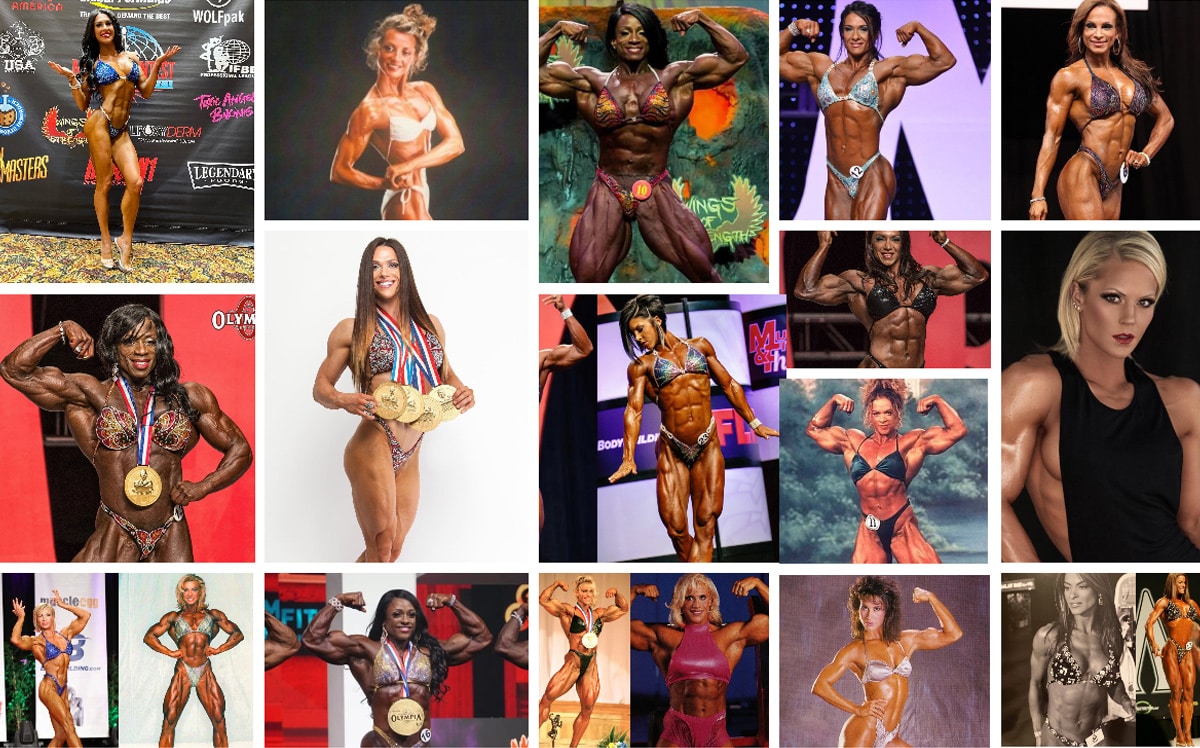
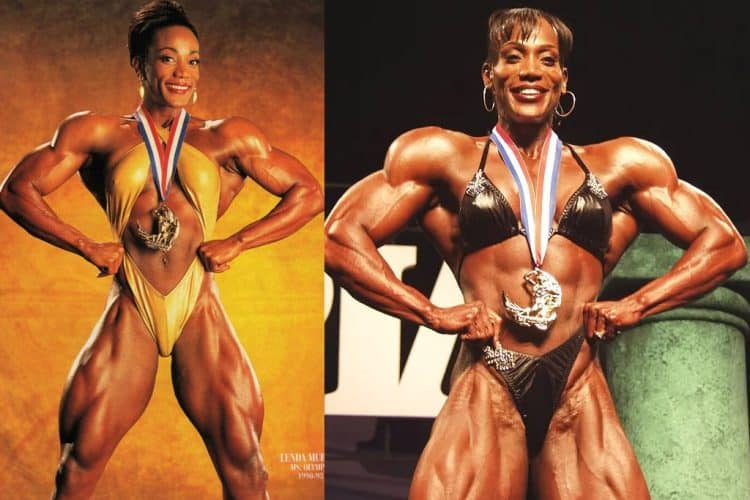
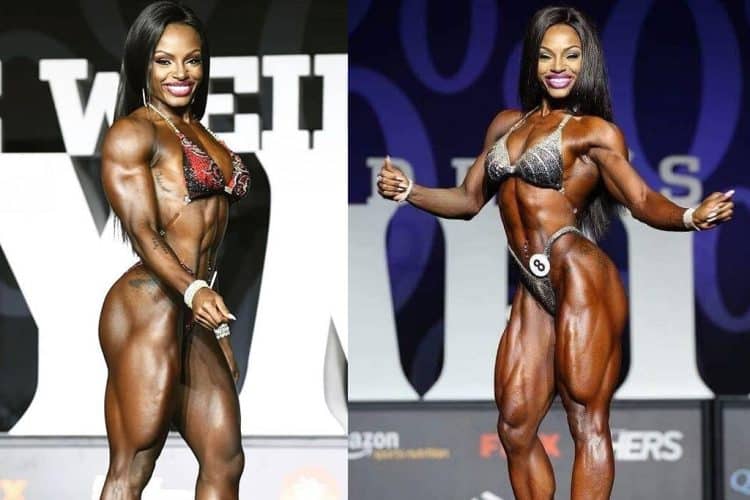






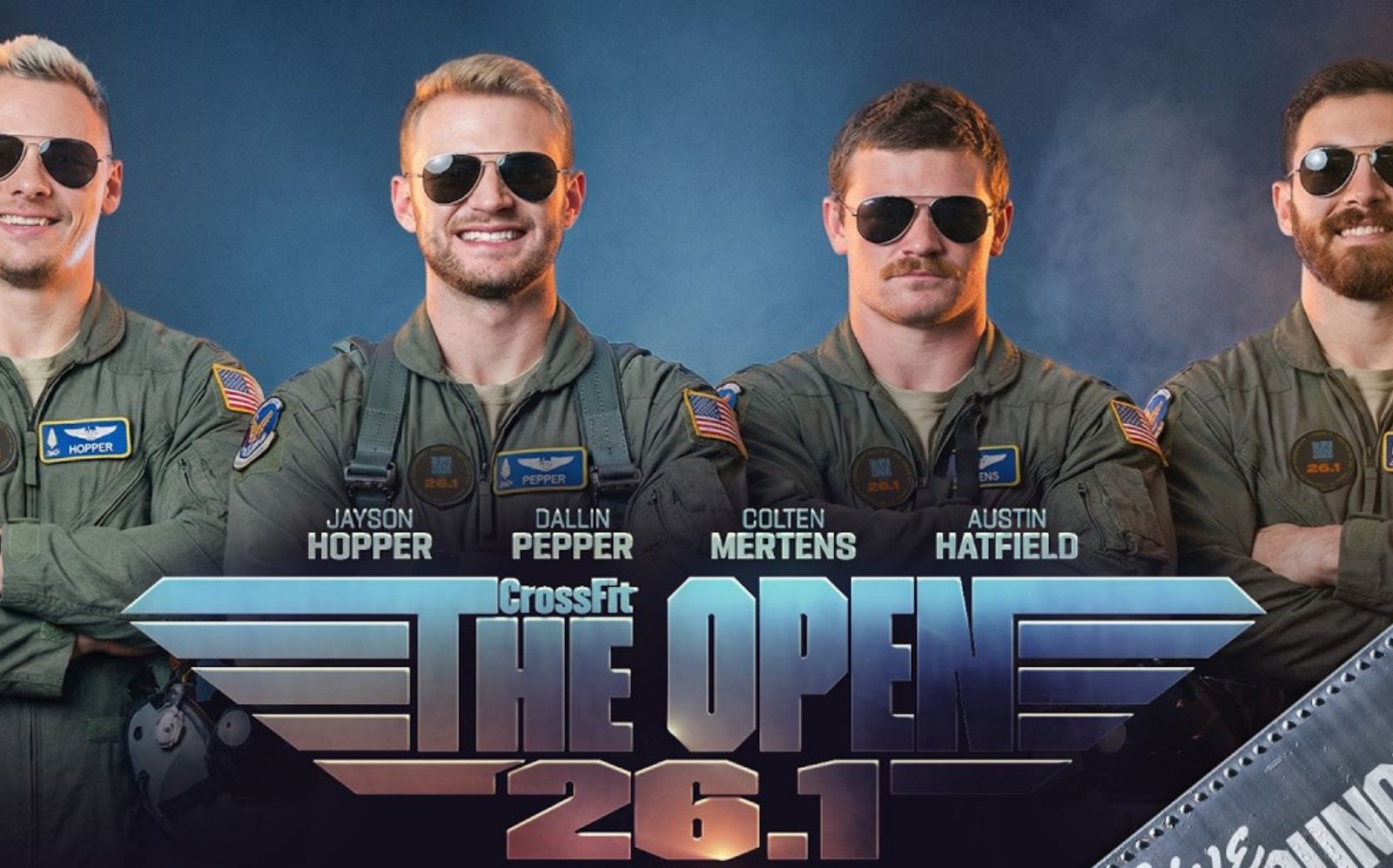
Mia Finnegan